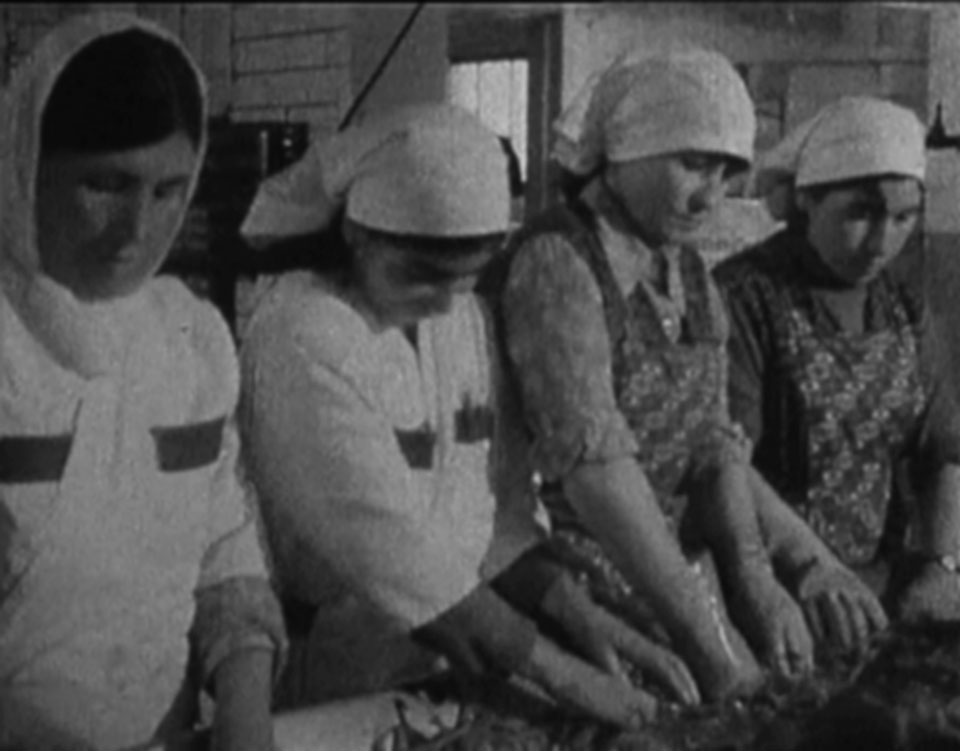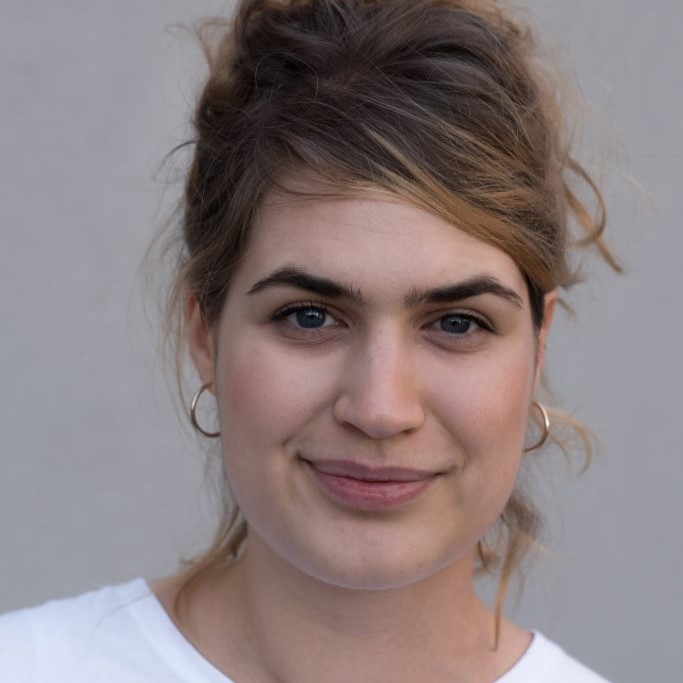FRG 1969 | Director: Edith Marcello (former Schmidt) | Camera: Bernhard Weber | Editor: Gisela Grafe | Sound: Dietrich Köpke | Production: Hessischer Rundfunk (hr) | b/w | digital | 30 min | german, turkish OV | hr
The off-screen speaker's voice explains the situation of Ms Karatan from Turkey: "She came to a glassworks in July, with a one-year contract at an hourly wage of 2.30 marks." Just a few months later, Ms Karatan's living and working conditions will prove untenable. The work is dangerous, and she experiences racist attacks in the factory. Now she's taking legal action against the company, and if she loses, she could be deported. Ms Karatan is accompanied by her little nephew, who translates Edith Marcello's questions: apparently, broadcaster Hessischer Rundfunk was unable to provide professional Turkish interpreters in 1969. This presents a hurdle, not least because BILLIGE HÄNDE takes the opening question "What do we know about them?" – the workers – seriously.
A Greek trade unionist, an Italian priest, and young Günter Wallraff place individual fates in the context of West Germany's immigration policy. The shocking conditions are part of a system. And yet Marcello finds moments of solidarity in her half-hour HR report: a wildcat strike among Spanish women workers in Hanover; the founding of an Italian school by women workers in Frankfurt. (Patrick Kokoszynski, 2023)

| Acronyms | |
|---|---|
| amer. | American English |
| b/w | Black and white |
| OV | Original version |
| SUB | Subtitles |
| +SUB | electronic live subtitling (below the image) |
| INT | Intertitles |
| Countries | |
|---|---|
| AT | Austria |
| FRG | Federal Republic of Germany (historic) |
| BLR | Belarus |
| DE | Germany |
| CAN | Canada |
| GDR | German Democratic Republic (historic) |
| EGY | Egypt |
| FR | France |
| GB | Great Britain |
| URY | Uruguay |
| BRA | Brasil |
| SWE | Sweden |
| UKR | Ukraine |
| PL | Poland |
| IDN | Indonesia |
| PRT | Portugal |
| HRV | Croatia |
| ECU | Ecuador |
| HUN | Hungary |
| AUS | Australia |
| IT | Italy |
| MEX | Mexico |
| IND | India |
FRG 1970 | Director: Edith Marcello (former Schmidt) | Editorial Staff: Valentin Senger | Assistance: Günther Boege | Camera: Bernhard Weber | Editor: Gisela Grafe | Sound: Hermann Möller | Production: Hessischer Rundfunk (hr) | b/w | digital | 42 min | german OV | hr
While BILLIGE HÄNDE dealt marginally with the precarious situation of migrant workers' children, Edith Marcello dedicated an entire film to this population group one year later. "The Italian school system is faulty, the German school system is faulty [...]; Because capitalist society [...] needs people to exploit, in this system it is appropriate that some children do not go far in school. We have spoken with children who go to the factories at age 13," explains Don Piero Guerra, a socially committed priest in Frankfurt's Italian community.
Though some of the film's protagonists and images will be recognisable to the viewer, this time its analytical approach is even broader. The thesis: since industry requires unskilled labourers in 1970, the West German school system has no interest in providing these children with an appropriate education or opportunities for advancement. Language difficulties, racist experiences, and, in the case of Greek children, even the Greek military dictatorship's access to the curriculum make it difficult for them to articulate their demands; and yet, the children and young people manage to have their say. (Patrick Kokoszynski, 2023)

| Acronyms | |
|---|---|
| amer. | American English |
| b/w | Black and white |
| OV | Original version |
| SUB | Subtitles |
| +SUB | electronic live subtitling (below the image) |
| INT | Intertitles |
| Countries | |
|---|---|
| AT | Austria |
| FRG | Federal Republic of Germany (historic) |
| BLR | Belarus |
| DE | Germany |
| CAN | Canada |
| GDR | German Democratic Republic (historic) |
| EGY | Egypt |
| FR | France |
| GB | Great Britain |
| URY | Uruguay |
| BRA | Brasil |
| SWE | Sweden |
| UKR | Ukraine |
| PL | Poland |
| IDN | Indonesia |
| PRT | Portugal |
| HRV | Croatia |
| ECU | Ecuador |
| HUN | Hungary |
| AUS | Australia |
| IT | Italy |
| MEX | Mexico |
| IND | India |
After the screening talk with Nuria Cafaro, Kölner Frauengeschichtsverein
Nuria Cafaro works at the Cologne Women's History Association for the self-organization of migrants, organizes city tours on the history of women's migration and is active in educational work on trade union and migration history. She studied philosophy, history and educational sciences and is doing her doctorate at the University of Cologne on labor disputes in Italy, France and West Germany around 1968. Her work also focuses on the history of the Italian workers' movement and that of migrant protest in the Federal Republic of Germany, in particular that of the Cologne Ford strike of 1973.







